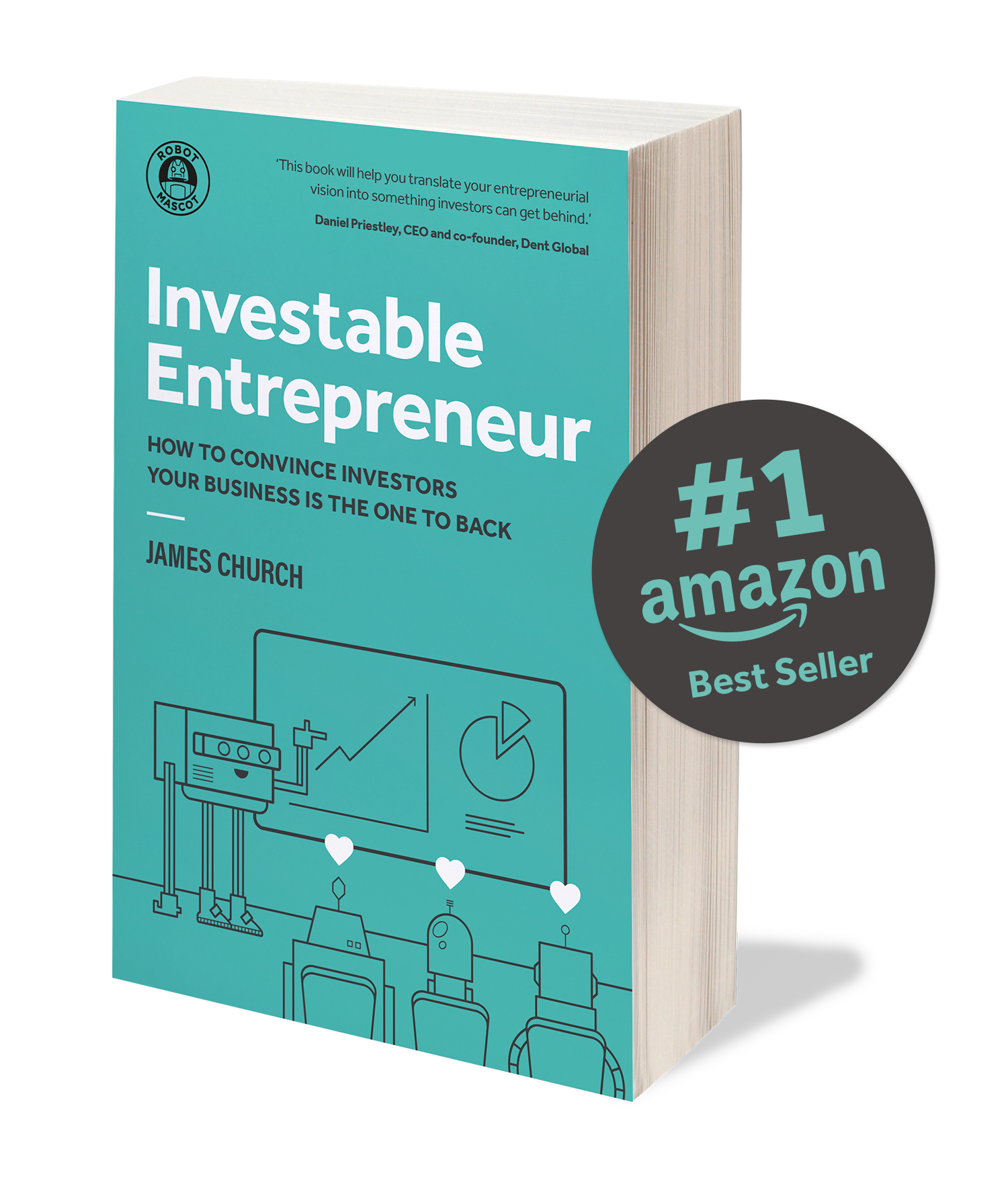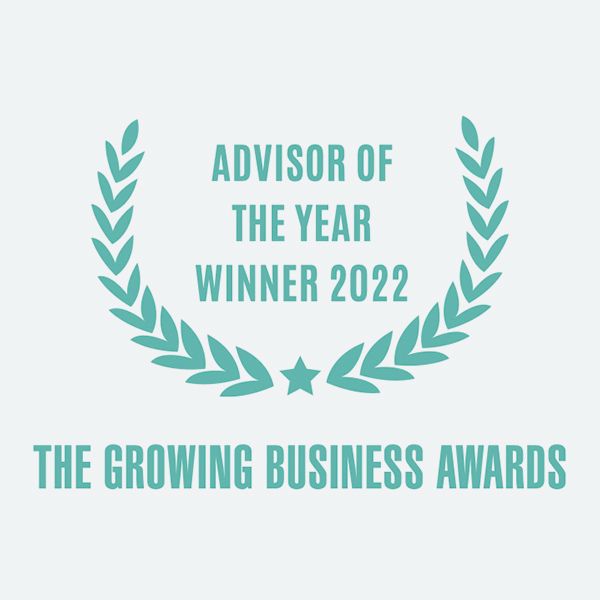

How to Choose the Right Startup Agency
26th June 2025
Launching and growing a startup is no small feat. You’ve worked tirelessly to shape your vision, refine your product and map out your strategy. But when it comes to securing funding – the lifeblood of any early-stage business – it’s clear you can’t do it alone. This is where the right startup agency can make all the difference.
Choosing the right agency isn’t just another item on your to-do list; it’s a pivotal decision that could determine whether your business thrives or stalls. The right partner will help you craft a compelling pitch, connect with investors and navigate the complexities of fundraising with confidence. But with so many agencies out there, how do you pick the one that truly understands your needs and has the expertise to deliver results?
This guide is here to help. We’ll walk you through everything you need to know – from identifying your startup’s unique challenges to evaluating potential agencies – so you can find a partner who will amplify your efforts and set you on the path to success. Let’s dive in and make sure you choose wisely!
1. Understand Your Startup’s Needs 
Before you even think about diving into the vast ocean of agencies, take a good, hard look in the mirror. What does your startup really need? Are you after a slick pitch deck that’ll make investors weak at the knees? Or perhaps you’re in dire need of financial projections that don’t look like they were scribbled on the back of a napkin after one too many pints?
Understanding your specific requirements is the cornerstone of finding the right agency. It’s like dating – you wouldn’t go looking for a partner without knowing what you want, would you? (Well, some might, but that’s a story for another day.)
For example:
- Marketing and branding
- Sales strategy
- Funding and financial planning
- Investment readiness and pitch deck development
- Recruitment and talent management
- Go-to-market strategy
- Market research
- Legal and compliance
- Investor outreach
Start by making a list of your pain points. Are you struggling to articulate your value proposition? Is your business plan more holes than substance? Once you’ve identified these areas, prioritise them. This will help you focus on agencies that specialise in addressing your most pressing needs.
Don’t forget to consider your short-term goals. Are you aiming to secure seed funding in the next six months? Or are you gearing up for a Series A round? Your immediate objectives will influence the type of agency you should be courting.
Founder to-do list
- Create a comprehensive list of your startup’s current challenges and pain points
- Define short-term goals (3-6 months) and long-term objectives (1-2 years)
- Identify specific areas where you need external expertise (e.g., pitch deck creation, financial modelling)
- Prioritise your needs based on urgency and potential impact on your startup’s growth
- Conduct a skills gap analysis within your current team
2. Evaluate Agency Experience
When it comes to startup agencies, experience isn’t just about how long they’ve been in business. It’s about whether they’ve got the chops to handle the unique challenges that startups face.
Look for agencies with team members who’ve been in the trenches of startup life. They should speak your language – and no, we don’t mean tech jargon (although that helps). We’re talking about understanding the rollercoaster ride of startup life, with all its ups, downs and loop-the-loops.
Domain expertise is another vital factor. If you’re developing a revolutionary AI-powered toaster, you’ll want an agency that knows its machine learning from its artisanal sourdough. They should be able to grasp the nuances of your industry and translate them into compelling narratives for investors.
But don’t just take their word for it. Dive into their case studies like a detective on a mission. Look for concrete examples of how they’ve helped startups similar to yours secure funding. Did they help a fintech startup raise £5 million in seed funding? Did their pitch deck for a healthtech company lead to a successful Series B round? These success stories are worth their weight in gold (or Bitcoin, if that’s more your style).
Founder to-do list:
- Research agencies specialising in startup support
- Create a shortlist of agencies with relevant industry expertise
- Review case studies and success stories from each agency
- Check for testimonials from startups similar to yours
- Arrange introductory calls with potential agencies
- Prepare a list of specific questions about their startup experience
- Request references from past clients in your industry or at a similar stage.
3. Review Service Offerings
Now, let’s talk about services. A good startup agency should offer a smorgasbord of options to satisfy your entrepreneurial appetite. At the very least, they should be dab hands at crafting business plans that don’t put investors to sleep, financial projections that actually make sense and pitch decks that could sell ice to an Eskimo.
The crème de la crème of agencies go beyond these basics. They might offer investor outreach services, helping you connect with the right people to fund your dreams. Some might even provide ongoing support, acting as your startup’s fairy godmother (or godfather – we don’t discriminate) as you navigate the choppy waters of early-stage growth.
When evaluating an agency’s service offerings, think about your long-term needs as well. Sure, you might only need a pitch deck now, but what about six months down the line when you’re knee-deep in due diligence? A versatile agency that can grow with you is worth its weight in unicorn tears.
Founder to-do list:
- List the specific services your startup requires (e.g., business plan creation, financial projections)
- Compare this list against each agency’s service offerings
- Identify agencies that offer comprehensive packages aligned with your needs
- Inquire about additional services that might benefit your startup in the future
- Ask about their approach to customising services for individual startups
- Determine if they offer ongoing support or only project-based work.
4. Assess Cultural Fit
Here’s where things get a bit… funky. Cultural fit might sound like something HR dreamed up to justify team-building exercises, but when it comes to choosing a startup agency, it’s absolutely vital.
You see, startups move at the speed of light (or at least, they should). You need an agency that can keep up with your breakneck pace, not one that moves at the speed of a particularly lethargic snail.
Look for agencies that embrace agile methodologies. They should be comfortable with rapid iterations, quick pivots and the general chaos that comes with startup life. If they start talking about six-month planning cycles, run for the hills (unless you’re developing a time machine, in which case, carry on).
Data-driven decision making is another hallmark of a startup-friendly agency. They should be obsessed with metrics, constantly analysing and optimising their strategies. Bonus points if they use fancy dashboards to visualise data – because let’s face it, who doesn’t love a good pie chart?
But cultural fit isn’t just about work styles. It’s also about values and vision. Do they share your passion for disrupting industries and changing the world? Or are they just in it for the paycheque? You want an agency that’s as excited about your startup as you are – maybe even more so (if that’s humanly possible).
Founder to-do list:
- Define your startup’s core values and work culture
- Create a list of questions to assess cultural alignment during agency interviews
- Observe the agency’s communication style and responsiveness during initial interactions
- Arrange a meeting with the potential team members you’d be working with
- Assess the agency’s adaptability and willingness to work at your startup’s pace
- Discuss their approach to problem-solving and innovation.
5. Check Testimonials and Case Studies
Now, let’s get down to brass tacks. Talk is cheap, but results speak volumes. Any agency worth its salt should have a trail of happy clients singing their praises from the rooftops.
Start by scouring review platforms like Clutch or GoodFirms. These sites are goldmines of information, offering unvarnished opinions from real clients. But don’t just skim the surface – dig deep into those reviews. Look for specific examples of how the agency added value, overcame challenges, or went above and beyond.
Case studies are another fantastic resource. They offer a more in-depth look at an agency’s work, showcasing their problem-solving skills and creativity. Pay close attention to the results achieved and the timelines involved. Did they help a startup secure funding in record time? Did their strategies lead to exponential growth? These are the kinds of outcomes you should be looking for.
Check out our video case studies for examples of how we show how we help startups.
Founder to-do list:
- Compile a list of the agency’s past clients
- Reach out directly to at least 3-5 past clients for feedback
- Prepare specific questions about the agency’s performance and results
- Analyse case studies for concrete metrics and outcomes
- Look for examples of how the agency handled challenges or pivots
- Check online reviews and ratings on platforms like Clutch or GoodFirms
- Assess the diversity of the agency’s client portfolio.
Pro tip: don’t just rely on the glowing testimonials plastered all over the agency’s website. Reach out to their past clients directly. A quick LinkedIn message or email can yield invaluable insights that you won’t find in curated case studies.
6. Evaluate Communication Skills
In the world of startups, effective communication isn’t just nice to have – it’s as essential as your morning coffee (or energy drink, or whatever keeps you going through those late-night coding sessions).
When evaluating potential agencies, pay close attention to how they communicate from the get-go. Are they responsive to your initial inquiries? Do they ask thoughtful questions about your business, or do they launch into a generic sales pitch?
Look for agencies that show genuine curiosity about your startup. They should be eager to understand your unique challenges, goals and vision. If they’re already offering solutions before fully grasping your situation, that’s a red flag bigger than a matador’s cape.
Proactivity is another key trait to watch for. The best agencies don’t just wait for instructions – they come to the table brimming with ideas and insights. They should be able to spot opportunities and potential pitfalls that you might have missed.
And let’s not forget about the importance of clear, jargon-free communication. While it’s great if an agency can throw around terms like “TAM”, “CAC” and “LTV” with the best of them, they should also be able to explain complex concepts in plain English. After all, if they can’t communicate clearly with you, how can you trust them to craft compelling narratives for investors?
Founder to-do list:
- Set up initial consultations with potential agencies
- Prepare a brief about your startup to see how well they understand your business
- Assess their ability to explain complex concepts in simple terms
- Monitor their responsiveness to emails and calls
- Ask about their preferred communication tools and frequency of updates
- Inquire about their process for handling disagreements or misunderstandings
- Evaluate their ability to provide constructive feedback and suggestions.
7. Consider Cost vs. Value
Ah, the elephant in the room – cost. It’s tempting to go for the cheapest option, especially when you’re bootstrapping your startup. But remember the old adage: you get what you pay for.
Instead of focusing solely on the price tag, think about the value an agency can bring to your startup. Consider the potential return on investment. If an agency charges a premium but has a track record of helping startups secure millions in funding, that could be money well spent.
Compare the cost of hiring an agency to the alternative of building an in-house team or working with freelancers. While agencies might seem expensive at first glance, they often offer a more cost-effective solution when you factor in the breadth of expertise and resources they bring to the table.
That said, don’t be afraid to negotiate. Many agencies are willing to work out flexible payment terms, especially for promising startups.
Founder to-do list:
- Request detailed pricing structures from each agency
- Calculate the potential ROI based on the agency’s track record
- Compare the cost of hiring an agency versus building an in-house team
- Inquire about flexible payment terms or performance-based pricing models
- Assess any additional costs not included in the initial quote
- Consider the long-term value of the agency’s network and expertise
- Prepare a budget proposal for your preferred agency option.
8. Focus on Fundraising Expertise
When it comes to securing investment, you need an agency that’s got fundraising down to a fine art. They should have a well-oiled machine for creating the assets you need to woo investors.
Look for agencies with a structured approach to developing fundraising materials. They should have a clear process for crafting compelling narratives, crunching numbers for financial projections and designing pitch decks that pack a punch.
However, it’s not just about creating pretty documents. The best agencies go beyond the basics, offering strategic advice on how to position your startup for maximum appeal to investors. They should be able to help you identify your unique selling points, articulate your market opportunity and address potential investor concerns before they even arise.
Investor outreach is another area where top-tier agencies can add tremendous value. Do they have established relationships with venture capital firms, angel investors, or other funding sources? Can they help you get your foot in the door with the right people?
Founder to-do list:
- Ask about the agency’s specific experience in helping startups secure funding
- Request examples of successful fundraising campaigns they’ve managed
- Inquire about their network of investors and venture capital firms
- Discuss their approach to creating compelling pitch decks and financial projections
- Ask about their success rate in helping startups secure investment
- Determine if they offer support during investor meetings and negotiations
- Inquire about their post-funding support services.
READ: 8 startup funding stages that will help you win investment
9. Trust Your Instincts
Here’s where things get a bit… nebulous. Sometimes, choosing the right agency comes down to that indefinable “X factor” – that spark of chemistry that tells you you’ve found the perfect match.
It might be the way they light up when talking about your startup’s potential. It could be their uncanny ability to finish your sentences when discussing your business model. Or perhaps it’s just a gut feeling that they “get” you and your vision.
Don’t discount these intangible factors. While it’s important to make a rational, data-driven decision, there’s also something to be said for trusting your instincts. After all, you’ll be working closely with this agency during some of the most critical moments of your startup’s journey. You want a partner you can trust, someone you can turn to when the going gets tough (and in startup land, it always does).
Founder to-do list:
- Reflect on your interactions with each agency and note your gut feelings
- Discuss your impressions with your co-founders or team members
- Consider how well the agency understands and shares your vision
- Assess the level of enthusiasm and commitment demonstrated by the agency
- Evaluate how comfortable you feel asking questions or expressing concerns
- Consider running a small pilot project to test the working relationship.
Final Steps in Agency Selection
As you near the end of your agency selection journey, it’s time to bring it all together. Create a shortlist of your top contenders and do a final round of due diligence. Reach out to their references, scrutinise their proposals and if possible, meet the team in person (or via video call – we are in the digital age, after all).
Consider running a small pilot project with your top choices. This can give you a taste of what it’s like to work with them and help you make a final decision based on real-world experience.
Remember, choosing a startup agency isn’t just about finding a service provider – it’s about finding a partner in crime (the legal kind, of course). You want an agency that will be there for you through the late nights, the pitch meetings, the funding rounds and everything in between.
Founder to-do list:
- Create a decision matrix with weighted criteria based on your priorities
- Conduct a final round of due diligence on your top choices
- Arrange face-to-face meetings or video calls with the agency teams
- Prepare a list of any final questions or concerns to address
- Review and negotiate contract terms and conditions
- Develop a clear onboarding plan and timeline with your chosen agency
- Set up initial meetings to align on goals and expectations.
So, intrepid entrepreneur, armed with this knowledge, go forth and find that perfect agency match. It might take some time and you might kiss a few frogs along the way, but when you find “the one”, you’ll know. And who knows? With the right agency by your side, you might just become the next startup success story we’re writing about.
And don’t forget, Robot Mascot is here to help you get ready for investment. Explore our services here.
Claim your Free Copy of Investable Entrepreneur
Investable Entrepreneur takes you through our winning methodology – the process we use to increase our client’s chances of raising investment by more than 30x.
“This book will help you translate your entrepreneurial vision into something investors can get behind.”
Daniel Priestley, CEO and founder, Dent Global and four times best-selling business author

Keep up to date with what we’re up to via email






Copyright ©Robot Mascot Ltd. All rights reserved.






